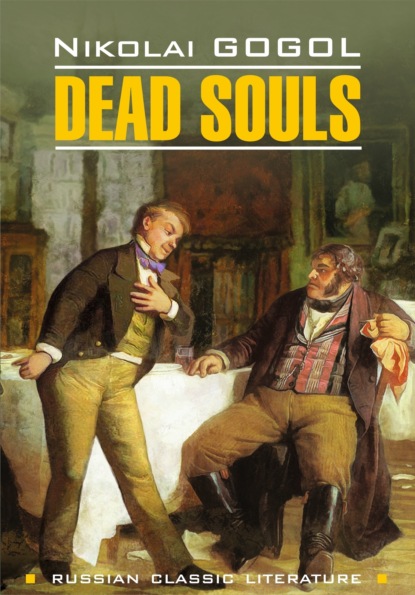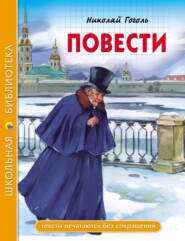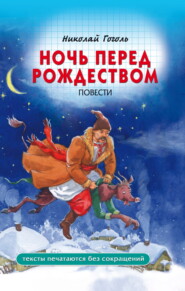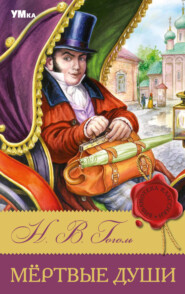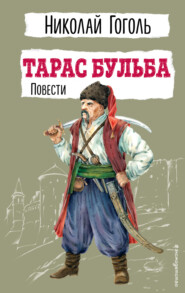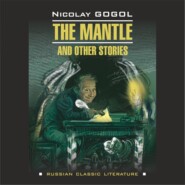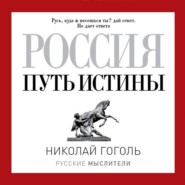По всем вопросам обращайтесь на: info@litportal.ru
(©) 2003-2024.
✖
Мёртвые души / Dead Souls
Жанр
Год написания книги
1842
Теги
Настройки чтения
Размер шрифта
Высота строк
Поля
“I cannot allow that,” objected the smiling Manilov. “The settee is specially reserved for my guests. Whether you choose or no, upon it you MUST sit.”
Accordingly Chichikov obeyed.
“And also let me hand you a pipe.”
“No, I never smoke,” answered Chichikov civilly, and with an assumed air of regret.
“And why?” inquired Manilov – equally civilly, but with a regret that was wholly genuine.
“Because I fear that I have never quite formed the habit, owing to my having heard that a pipe exercises a desiccating effect upon the system.”
“Then allow me to tell you that that is mere prejudice. Nay, I would even go so far as to say that to smoke a pipe is a healthier practice than to take snuff. Among its members our regiment numbered a lieutenant – a most excellent, well-educated fellow – who was simply INCAPABLE of removing his pipe from his mouth, whether at table or (pardon me) in other places. He is now forty, yet no man could enjoy better health than he has always done.”
Chichikov replied that such cases were common, since nature comprised many things which even the finest intellect could not compass.
“But allow me to put to you a question,” he went on in a tone in which there was a strange – or, at all events, RATHER a strange – note. For some unknown reason, also, he glanced over his shoulder. For some equally unknown reason, Manilov glanced over HIS.
“How long is it,” inquired the guest, “since you last rendered a census return?”
“Oh, a long, long time. In fact, I cannot remember when it was.”
“And since then have many of your serfs died?”
“I do not know. To ascertain that I should need to ask my bailiff. Footman, go and call the bailiff. I think he will be at home to-day.”
Before long the bailiff made his appearance. He was a man of under forty, clean-shaven, clad in a smock, and evidently used to a quiet life, seeing that his face was of that puffy fullness, and the skin encircling his slit-like eyes was of that sallow tint, which shows that the owner of those features is well acquainted with a feather bed. In a trice it could be seen that he had played his part in life as all such bailiffs do – that, originally a young serf of elementary education, he had married some Agashka of a housekeeper or a mistress’s favourite, and then himself become housekeeper, and, subsequently, bailiff; after which he had proceeded according to the rules of his tribe – that is to say, he had consorted with and stood in with the more well-to-do serfs on the estate, and added the poorer ones to the list of forced payers of obrok, while himself leaving his bed at nine o’clock in the morning, and, when the samovar had been brought, drinking his tea at leisure.
“Look here, my good man,” said Manilov. “How many of our serfs have died since the last census revision?”
“How many of them have died? Why, a great many.” The bailiff hiccoughed, and slapped his mouth lightly after doing so.
“Yes, I imagined that to be the case,” corroborated Manilov. “In fact, a VERY great many serfs have died.” He turned to Chichikov and repeated the words.
“How many, for instance?” asked Chichikov.
“Yes; how many?” re-echoed Manilov.
“HOW many?” re-echoed the bailiff. “Well, no one knows the exact number, for no one has kept any account.”
“Quite so,” remarked Manilov. “I supposed the death-rate to have been high, but was ignorant of its precise extent.”
“Then would you be so good as to have it computed for me?” said Chichikov. “And also to have a detailed list of the deaths made out?”
“Yes, I will – a detailed list,” agreed Manilov.
“Very well.”
The bailiff departed.
“For what purpose do you want it?” inquired Manilov when the bailiff had gone.
The question seemed to embarrass the guest, for in Chichikov’s face there dawned a sort of tense expression, and it reddened as though its owner were striving to express something not easy to put into words. True enough, Manilov was now destined to hear such strange and unexpected things as never before had greeted human ears.
“You ask me,” said Chichikov, “for what purpose I want the list. Well, my purpose in wanting it is this – that I desire to purchase a few peasants.” And he broke off in a gulp.
“But may I ask HOW you desire to purchase those peasants?” asked Manilov. “With land, or merely as souls for transferment – that is to say, by themselves, and without any land?”
“I want the peasants themselves only,” replied Chichikov. “And I want dead ones at that.”
“What? – Excuse me, but I am a trifle deaf. Really, your words sound most strange!”
“All that I am proposing to do,” replied Chichikov, “is to purchase the dead peasants who, at the last census, were returned by you as alive.”
Manilov dropped his pipe on the floor, and sat gaping. Yes, the two friends who had just been discussing the joys of camaraderie sat staring at one another like the portraits which, of old, used to hang on opposite sides of a mirror. At length Manilov picked up his pipe, and, while doing so, glanced covertly at Chichikov to see whether there was any trace of a smile to be detected on his lips – whether, in short, he was joking. But nothing of the sort could be discerned. On the contrary, Chichikov’s face looked graver than usual. Next, Manilov wondered whether, for some unknown reason, his guest had lost his wits; wherefore he spent some time in gazing at him with anxious intentness. But the guest’s eyes seemed clear – they contained no spark of the wild, restless fire which is apt to wander in the eyes of madmen. All was as it should be. Consequently, in spite of Manilov’s cogitations, he could think of nothing better to do than to sit letting a stream of tobacco smoke escape from his mouth.
“So,” continued Chichikov, “what I desire to know is whether you are willing to hand over to me – to resign – these actually non-living, but legally living, peasants; or whether you have any better proposal to make?”
Manilov felt too confused and confounded to do aught but continue staring at his interlocutor.
“I think that you are disturbing yourself unnecessarily,” was Chichikov’s next remark.
“I? Oh no! Not at all!” stammered Manilov. “Only – pardon me – I do not quite comprehend you. You see, never has it fallen to my lot to acquire the brilliant polish which is, so to speak, manifest in your every movement. Nor have I ever been able to attain the art of expressing myself well. Consequently, although there is a possibility that in the – er – utterances which have just fallen from your lips there may lie something else concealed, it may equally be that – er – you have been pleased so to express yourself for the sake of the beauty of the terms wherein that expression found shape?”
“Oh, no,” asserted Chichikov. “I mean what I say and no more. My reference to such of your pleasant souls as are dead was intended to be taken literally.”
Manilov still felt at a loss – though he was conscious that he MUST do something, he MUST propound some question. But what question? The devil alone knew! In the end he merely expelled some more tobacco smoke – this time from his nostrils as well as from his mouth.
“So,” went on Chichikov, “if no obstacle stands in the way, we might as well proceed to the completion of the purchase.”
“What? Of the purchase of the dead souls?”
“Of the ‘dead’ souls? Oh dear no! Let us write them down as LIVING ones, seeing that that is how they figure in the census returns. Never do I permit myself to step outside the civil law, great though has been the harm which that rule has wrought me in my career. In my eyes an obligation is a sacred thing. In the presence of the law I am dumb.”
These last words reassured Manilov not a little: yet still the meaning of the affair remained to him a mystery. By way of answer, he fell to sucking at his pipe with such vehemence that at length the pipe began to gurgle like a bassoon. It was as though he had been seeking of it inspiration in the present unheard-of juncture. But the pipe only gurgled, et praeterea nihil.
“Perhaps you feel doubtful about the proposal?” said Chichikov.
“Not at all,” replied Manilov. “But you will, I know, excuse me if I say (and I say it out of no spirit of prejudice, nor yet as criticising yourself in any way) – you will, I know, excuse me if I say that possibly this – er – this, er, SCHEME of yours, this – er – TRANSACTION of yours, may fail altogether to accord with the Civil Statutes and Provisions of the Realm?”
And Manilov, with a slight gesture of the head, looked meaningly into Chichikov’s face, while displaying in his every feature, including his closely-compressed lips, such an expression of profundity as never before was seen on any human countenance – unless on that of some particularly sapient Minister of State who is debating some particularly abstruse problem.
Nevertheless Chichikov rejoined that the kind of scheme or transaction which he had adumbrated in no way clashed with the Civil Statutes and Provisions of Russia; to which he added that the Treasury would even BENEFIT by the enterprise, seeing it would draw therefrom the usual legal percentage.
“What, then, do you propose?” asked Manilov.
“I propose only what is above-board, and nothing else.”
“Then, that being so, it is another matter, and I have nothing to urge against it,” said Manilov, apparently reassured to the full.
Accordingly Chichikov obeyed.
“And also let me hand you a pipe.”
“No, I never smoke,” answered Chichikov civilly, and with an assumed air of regret.
“And why?” inquired Manilov – equally civilly, but with a regret that was wholly genuine.
“Because I fear that I have never quite formed the habit, owing to my having heard that a pipe exercises a desiccating effect upon the system.”
“Then allow me to tell you that that is mere prejudice. Nay, I would even go so far as to say that to smoke a pipe is a healthier practice than to take snuff. Among its members our regiment numbered a lieutenant – a most excellent, well-educated fellow – who was simply INCAPABLE of removing his pipe from his mouth, whether at table or (pardon me) in other places. He is now forty, yet no man could enjoy better health than he has always done.”
Chichikov replied that such cases were common, since nature comprised many things which even the finest intellect could not compass.
“But allow me to put to you a question,” he went on in a tone in which there was a strange – or, at all events, RATHER a strange – note. For some unknown reason, also, he glanced over his shoulder. For some equally unknown reason, Manilov glanced over HIS.
“How long is it,” inquired the guest, “since you last rendered a census return?”
“Oh, a long, long time. In fact, I cannot remember when it was.”
“And since then have many of your serfs died?”
“I do not know. To ascertain that I should need to ask my bailiff. Footman, go and call the bailiff. I think he will be at home to-day.”
Before long the bailiff made his appearance. He was a man of under forty, clean-shaven, clad in a smock, and evidently used to a quiet life, seeing that his face was of that puffy fullness, and the skin encircling his slit-like eyes was of that sallow tint, which shows that the owner of those features is well acquainted with a feather bed. In a trice it could be seen that he had played his part in life as all such bailiffs do – that, originally a young serf of elementary education, he had married some Agashka of a housekeeper or a mistress’s favourite, and then himself become housekeeper, and, subsequently, bailiff; after which he had proceeded according to the rules of his tribe – that is to say, he had consorted with and stood in with the more well-to-do serfs on the estate, and added the poorer ones to the list of forced payers of obrok, while himself leaving his bed at nine o’clock in the morning, and, when the samovar had been brought, drinking his tea at leisure.
“Look here, my good man,” said Manilov. “How many of our serfs have died since the last census revision?”
“How many of them have died? Why, a great many.” The bailiff hiccoughed, and slapped his mouth lightly after doing so.
“Yes, I imagined that to be the case,” corroborated Manilov. “In fact, a VERY great many serfs have died.” He turned to Chichikov and repeated the words.
“How many, for instance?” asked Chichikov.
“Yes; how many?” re-echoed Manilov.
“HOW many?” re-echoed the bailiff. “Well, no one knows the exact number, for no one has kept any account.”
“Quite so,” remarked Manilov. “I supposed the death-rate to have been high, but was ignorant of its precise extent.”
“Then would you be so good as to have it computed for me?” said Chichikov. “And also to have a detailed list of the deaths made out?”
“Yes, I will – a detailed list,” agreed Manilov.
“Very well.”
The bailiff departed.
“For what purpose do you want it?” inquired Manilov when the bailiff had gone.
The question seemed to embarrass the guest, for in Chichikov’s face there dawned a sort of tense expression, and it reddened as though its owner were striving to express something not easy to put into words. True enough, Manilov was now destined to hear such strange and unexpected things as never before had greeted human ears.
“You ask me,” said Chichikov, “for what purpose I want the list. Well, my purpose in wanting it is this – that I desire to purchase a few peasants.” And he broke off in a gulp.
“But may I ask HOW you desire to purchase those peasants?” asked Manilov. “With land, or merely as souls for transferment – that is to say, by themselves, and without any land?”
“I want the peasants themselves only,” replied Chichikov. “And I want dead ones at that.”
“What? – Excuse me, but I am a trifle deaf. Really, your words sound most strange!”
“All that I am proposing to do,” replied Chichikov, “is to purchase the dead peasants who, at the last census, were returned by you as alive.”
Manilov dropped his pipe on the floor, and sat gaping. Yes, the two friends who had just been discussing the joys of camaraderie sat staring at one another like the portraits which, of old, used to hang on opposite sides of a mirror. At length Manilov picked up his pipe, and, while doing so, glanced covertly at Chichikov to see whether there was any trace of a smile to be detected on his lips – whether, in short, he was joking. But nothing of the sort could be discerned. On the contrary, Chichikov’s face looked graver than usual. Next, Manilov wondered whether, for some unknown reason, his guest had lost his wits; wherefore he spent some time in gazing at him with anxious intentness. But the guest’s eyes seemed clear – they contained no spark of the wild, restless fire which is apt to wander in the eyes of madmen. All was as it should be. Consequently, in spite of Manilov’s cogitations, he could think of nothing better to do than to sit letting a stream of tobacco smoke escape from his mouth.
“So,” continued Chichikov, “what I desire to know is whether you are willing to hand over to me – to resign – these actually non-living, but legally living, peasants; or whether you have any better proposal to make?”
Manilov felt too confused and confounded to do aught but continue staring at his interlocutor.
“I think that you are disturbing yourself unnecessarily,” was Chichikov’s next remark.
“I? Oh no! Not at all!” stammered Manilov. “Only – pardon me – I do not quite comprehend you. You see, never has it fallen to my lot to acquire the brilliant polish which is, so to speak, manifest in your every movement. Nor have I ever been able to attain the art of expressing myself well. Consequently, although there is a possibility that in the – er – utterances which have just fallen from your lips there may lie something else concealed, it may equally be that – er – you have been pleased so to express yourself for the sake of the beauty of the terms wherein that expression found shape?”
“Oh, no,” asserted Chichikov. “I mean what I say and no more. My reference to such of your pleasant souls as are dead was intended to be taken literally.”
Manilov still felt at a loss – though he was conscious that he MUST do something, he MUST propound some question. But what question? The devil alone knew! In the end he merely expelled some more tobacco smoke – this time from his nostrils as well as from his mouth.
“So,” went on Chichikov, “if no obstacle stands in the way, we might as well proceed to the completion of the purchase.”
“What? Of the purchase of the dead souls?”
“Of the ‘dead’ souls? Oh dear no! Let us write them down as LIVING ones, seeing that that is how they figure in the census returns. Never do I permit myself to step outside the civil law, great though has been the harm which that rule has wrought me in my career. In my eyes an obligation is a sacred thing. In the presence of the law I am dumb.”
These last words reassured Manilov not a little: yet still the meaning of the affair remained to him a mystery. By way of answer, he fell to sucking at his pipe with such vehemence that at length the pipe began to gurgle like a bassoon. It was as though he had been seeking of it inspiration in the present unheard-of juncture. But the pipe only gurgled, et praeterea nihil.
“Perhaps you feel doubtful about the proposal?” said Chichikov.
“Not at all,” replied Manilov. “But you will, I know, excuse me if I say (and I say it out of no spirit of prejudice, nor yet as criticising yourself in any way) – you will, I know, excuse me if I say that possibly this – er – this, er, SCHEME of yours, this – er – TRANSACTION of yours, may fail altogether to accord with the Civil Statutes and Provisions of the Realm?”
And Manilov, with a slight gesture of the head, looked meaningly into Chichikov’s face, while displaying in his every feature, including his closely-compressed lips, such an expression of profundity as never before was seen on any human countenance – unless on that of some particularly sapient Minister of State who is debating some particularly abstruse problem.
Nevertheless Chichikov rejoined that the kind of scheme or transaction which he had adumbrated in no way clashed with the Civil Statutes and Provisions of Russia; to which he added that the Treasury would even BENEFIT by the enterprise, seeing it would draw therefrom the usual legal percentage.
“What, then, do you propose?” asked Manilov.
“I propose only what is above-board, and nothing else.”
“Then, that being so, it is another matter, and I have nothing to urge against it,” said Manilov, apparently reassured to the full.





